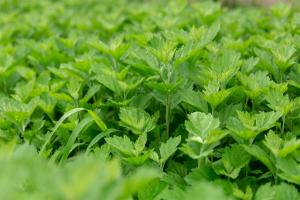Can I Use Tap Water for Plants?
As a plant enthusiast, you must be aware that water is an essential element needed for the growth and development of all plants. However, not all water sources are suitable for plants, and one question that often comes up is whether tap water can be used for plants.
Understanding Tap Water and Its Composition
Before we can answer the question, it is crucial to understand what tap water is and its composition. Tap water is water that has been treated and purified by your local water treatment facility before being distributed to your home or business through pipes. The composition of tap water varies depending on the source and the treatment process.
Typically, tap water contains essential minerals such as calcium, magnesium, and potassium, which are beneficial to plants. However, it may also contain chlorine, fluoride, and other chemicals that can be harmful to plants.
Is Tap Water Safe for Plants?
Yes, tap water is generally safe for plants. However, it is essential to understand the composition of your tap water and its potential impact on your plants.
Chlorine is one of the most common chemicals found in tap water. It is added to water as a disinfectant to kill harmful bacteria and viruses. However, it can also kill beneficial microbes and bacteria found in the soil that are necessary for plant growth.
Fluoride is another chemical found in tap water. It is added to help prevent tooth decay. However, excessive amounts of fluoride can be toxic to plants and can lead to symptoms such as leaf burn and stunted growth.
How to Make Tap Water Safe for Plants?
If your tap water contains harmful chemicals, you can make it safe for your plants by using a few simple methods:
1. Let Water Sit Overnight: Chlorine in tap water evaporates over time. You can fill a watering can with tap water and let it sit overnight before using it. This will allow the chlorine to dissipate and make the water safer for your plants.
2. Use a Water Filter: A water filter can remove harmful chemicals such as chlorine and fluoride from tap water. You can attach a water filter to your faucet or use a pitcher with a built-in filter to filter your tap water before using it on your plants.
3. Collect Rainwater: Rainwater is naturally filtered by the atmosphere and is free from harmful chemicals. You can collect rainwater in a barrel or container and use it to water your plants.
Conclusion
Tap water can be used for plants, but it is important to understand its composition and potential impact on your plants. If your tap water contains harmful chemicals, you can make it safe for your plants by using simple methods such as letting it sit overnight, using a water filter, or collecting rainwater.
By taking the time to understand and address the quality of your tap water, you can help your plants thrive and grow to their full potential.

 how many times do yo...
how many times do yo... how many planted tre...
how many planted tre... how many pine trees ...
how many pine trees ... how many pecan trees...
how many pecan trees... how many plants comp...
how many plants comp... how many plants can ...
how many plants can ... how many plants and ...
how many plants and ... how many pepper plan...
how many pepper plan...































